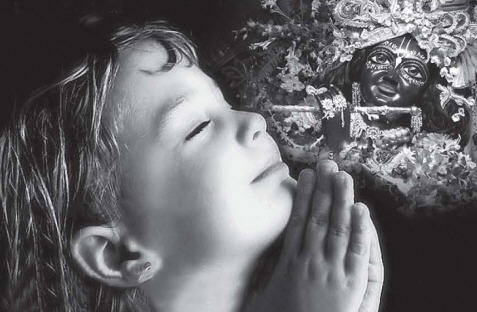Question :In his purport to BG 2.27 Srila Prabhupada discusses that Arjuna had no reason to lament the results of discharging his Ksatriya duties because the Battle of Kuruksetra was inevitable and duties must be properly discharged even in such unfortunate circumstances.
From what I have heard of Mahabharata many efforts were made to find some compromise, but ultimately the battle was “the will of the Supreme” and could not be avoided. Similarly, we see Rupa Goswami and Sanatana Goswami working for the Muhammedan government of the Shah under the higher principle of protecting the Vaisnavas from his threat of violence. However, when the opportunity arose they left to serve Caitanya Mahaprabhu in a higher capacity.
In the modern context, for the purposes of maintenance, purification and discharge of duty to society we are bound to take up some business or occupation that is wrought with fault due to the nature of modern work in general. With the above in mind it appears that whether in the so-called conditioned state (Arjuna’s example) or in the liberated state (the Goswami’s example) the devotee should always accept the need to properly perform his duty as prescribed by authorities and at the same time seek a purer occupation.
Unless a particular job or occupation is specifically outlined by spiritual authorities as the path to which one should strictly adhere (as in the case of Krishna’s instruction to Arjuna to fight the Battle of Kuruksetra despite the loss of life involved) is it the case that a devotee should under guidance continually seek a purer or “more-Vedic” occupation to fulfill the purposes of purification, maintenance and proper discharge of duty in relation to society? I can attest that if done incorrectly such constant seeking of occupational change can quickly become impatience or dissatisfaction with one’s current occupation, but done correctly with a contented heart and a non-fruitive, religious and devotional purpose, is this seeking of a purer situation the disposition and course of action that is most pleasing to Krishna?
Answer Romapada Swami :
Both of your observations are true. Yes, it is very conducive for progressive development in spiritual life to reflect, with the help of proper guidance, upon the effectiveness of one’s engagements and to seek a purer or more favorable platform for rendering one’s services. And yes, one should not fall prey to restlessness of mind in the course of steadily executing one’s present duties. Rather than thinking of it as ‘constant’ or ‘continual’ seeking as you describe, I would describe it as a ‘periodical assessment’, and this is very healthy for spiritual progress.
As one steadily performs one’s present prescribed duties and applies oneself to hearing and chanting, the heart becomes purified. In turn, based upon hearing – for instance, the example you pointed to regarding Rupa and Sanatana Goswamis – there may arise the motivation to move towards a more devotionally fulfilling and effective occupation, or ‘more-Vedic’ occupation. But as long as one’s occupation is not directly sinful in violation of regulative principles, the wisest course of action would be not to abruptly change, but to internalize that inspiration deeply, while continuing to purify oneself by discharging one’s duties. And after consultation with superiors and well-wishing vaishnavas, one can take calculated steps towards gradually moving towards their envisioned change.
It is natural to feel aversion / indifference with modern atheistic occupational engagements having come to taste the Vaishnava way of life and philosophy. But abrupt changes without proper internal preparation and purification will not be sustainable, due to such a shift being premature. Neither is it healthy to maintain one’s status quo without actively considering alternatives. One may be unable to actually change, but even the aspiration for more direct engagements in service to Lord Caitanya’s mission is very purifying and avoids stagnation.
Not only in the modern context of occupational duties, but even in the Vedic context, attachment to status quo and stagnation were always disapproved of, although satisfaction with one’s material situation was a recommended virtue. The Varnasrama system was structured in such a way as to help one become steadily detached and devote especially the later part of life exclusively for preaching and other forms of direct devotional service. As Srila Prabhupada often liked to point out, one must retire at the age of 50. This meant preparing oneself for many years in advance to mold one’s life to move towards that stage of life. It was not that at 50, one abruptly left home; rather, far more natural is gradual preparation of consciousness as well as different levels of transition in one’s affairs such that one is ready to dedicate his life fully at the age of 50. In this case, there was no need for a “change” of occupation, because the duties themselves were pure and prescribed by higher authorities, and yet there was a program for transition towards lesser material involvement and greater dedication.
This same principle is also reflected in the injunction against niyamagraha — being overly attached to one’s position and the rules and regulations associated with it, or giving up the prescribed regulations for one’s particular stage out of restlessness are both detrimental to bhakti. This is the broad principle, which in the context of your question is applied to the nature of occupational duty one is engaged in modern society.







